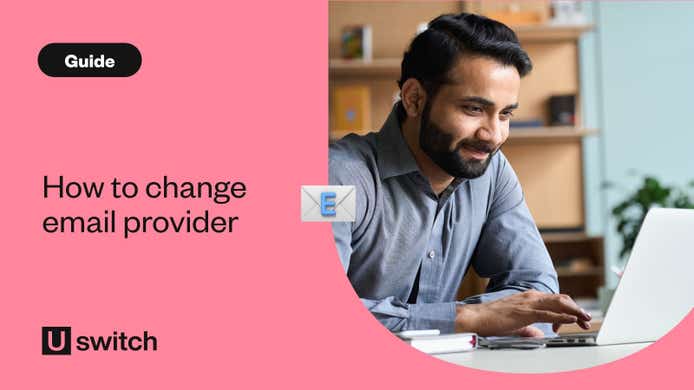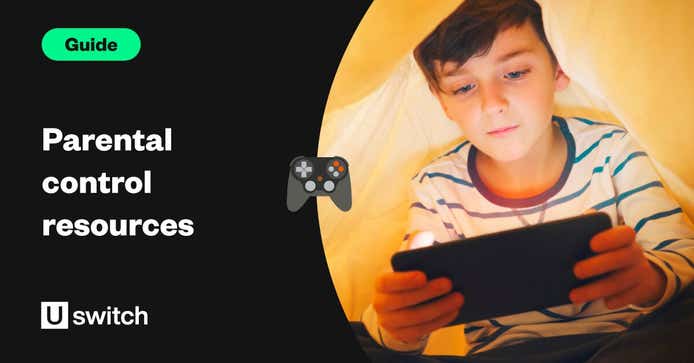As internet security gets better at blocking viruses and scams, they, in turn, get better at evading it. But, the good news is, while that battle is far from over, there are lots of easy ways you can avoid malicious traps and steer clear of viruses online.
Staying protected with antivirus software
It’s essential that you get some security software for your PC or laptop before you start using it to access the internet. This will give you a significant security boost by identifying viruses, also known as malware, in the files you download and the websites you visit.
But before we jump too far ahead, let’s quickly explain what viruses are, by giving a brief definition of malware.
What is malware?
Malware is short for malicious software. It is the general description of all types of computer viruses and harmful programs that intend to do harm to an electronic device, or the information you have stored on it.
Hackers and cybercriminals use malware to get access to your private information, which can leave you vulnerable to threats, ransom, or the destruction of important files.
Essentially, there’s no difference between malware and a virus. All computer viruses fall under the umbrella term of malware.
Can I get free virus protection?
There are a number of free antivirus programs you can use. Most laptops and computers will have built-in antivirus software created by the manufacturer.
For example, Windows devices automatically run the Defender antivirus program, and Apple machines are famous for their incredibly robust antivirus security. These out-of-the-box services go a long way in stopping viruses from getting onto your computer.
However, free antivirus software only goes so far. It will protect your computer from a lot of the main vulnerabilities, like most of the ones caused by web browsing. But it doesn’t include the additional features that make your device, and your information, much more secure.
Not only do paid antivirus programs offer stronger protection against malware, but they include a range of measures that further tighten the screws, such as VPN access, advanced parental controls and password managers.
So, it’s a really sensible idea to pay for extra security, particularly if you handle sensitive data or store other people’s private information on your device.
How to get rid of a virus
All antivirus programs will have a virus scanner that’ll scrape through all of your stored files to look for any sign of an active or dormant virus. You can usually run scans at varying levels — some scans can lightly crawl through your computer, while others scrutinise each file in depth.
These scanners should tell you whether any malware exists on your device and will usually be able to automatically remove them in the process.
In the unlikely event that the automated software can’t remove a dangerous piece of software, you should completely disconnect your device and not turn it back on until an experienced professional gives it the all-clear. But keep in mind that this is very unlikely to happen, as antivirus software protects you from most viruses.
How to detect a virus on your Android phone
If you get a virus on your Android phone, it will probably be from an unofficial app downloaded from the web browser. The Google Play Store has its own security scanning measures that ensure only safe apps can be downloaded, but downloading files from the web on Android doesn’t have these strict measures in place, which can leave your phone open to malicious software.
You can download safe antivirus apps onto your Android phone from the Google Play Store which will check for malware. Our top recommendations would be:
Avast Mobile Security: This free antivirus app comes with a wide range of useful safety features, including anti-theft alerts and a junk cleaner for unwanted files.
Bitdefender (£9.99 per year): This multi-device app links up with your smartwatch to give you tight security, expert online safety advice and location-tracking anti-theft features.
Read more about how to keep your Android phone safe from viruses.
How to detect a virus on your iPhone
While it’s not unheard of for iPhones to be infected, the chances of it getting a virus are pretty tiny, largely thanks to the restrictions Apple has on downloading apps and programs from the Safari web browser.
If you’re still concerned about your Apple device, however, you should contact Apple to get it looked at.
Avoiding scams and fraud online
The internet has completely changed the way we save and spend our money. Instead of needing to visit a bank branch in person, people can set up a savings account, invest their money, take out loans and much more, all from an electronic device in their home. And, of course, online shopping has revolutionised the way we spend our money.
However, managing our finances digitally comes with a higher risk of falling victim to scams. Scammers and fraudsters are experts at disguising fake payments and schemes as genuine ones, and millions of Brits fall victim to them each year. This is called phishing.
The UK’s Financial Ombudsman has some very helpful advice on how to keep your personal information safe, and what not to do if you come across a web page, email or text asking for your money.
What is phishing?
Phishing is a common method fraudsters use to obtain people’s private information and payment details online. It involves using deceptive communications like scam emails, fake texts and popups to trick people into providing sensitive data.
It’s a very similar practice to the nuisance calls from scammers that you might sometimes receive on your landline or mobile.
If you are the victim of a phishing scam or have spotted a communication online that you think might be phishing, you can report it to the National Cyber Security Centre.
Keeping children safe online
If you’re concerned about internet safety for your children, there are a number of things you can do to protect them from inappropriate or harmful areas of the web.
See our guide to setting up parental controls for some expert advice on keeping your kids safe online.




